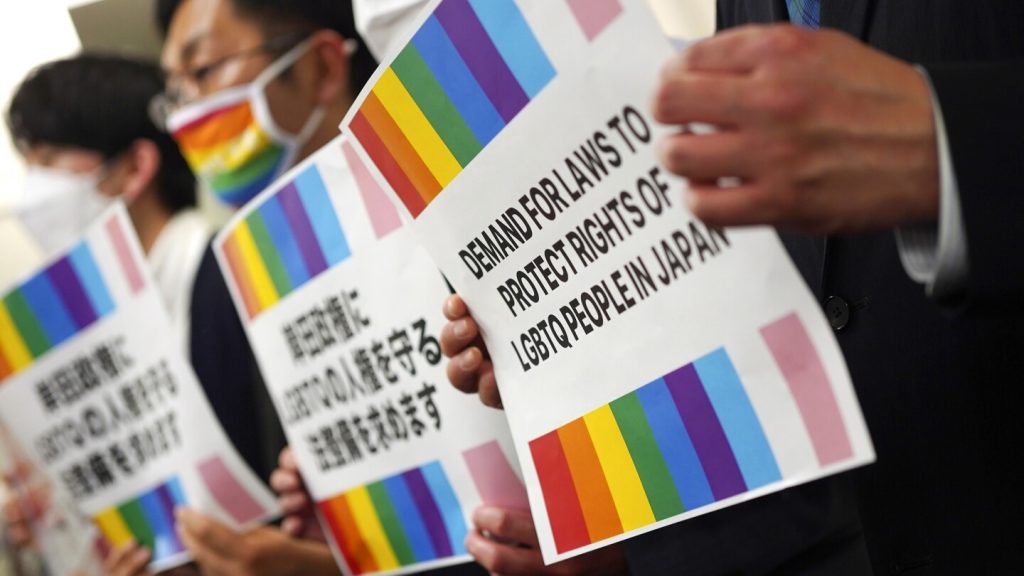A landmark ruling by the Tokyo High Court on Wednesday declared Japan’s ban on same-sex marriage unconstitutional. Presiding Judge Sonoe Taniguchi stated that the policy violates the constitutional right to equality, individuals’ dignity, and equality between sexes. This decision marks the seventh ruling against the ban, with only one district court finding it constitutional. The ongoing ban prevents same-sex couples from marrying and enjoying the same benefits as heterosexual couples, leading to a violation of their fundamental rights. The rulings can still be appealed to the Supreme Court, but the LGBTQ+ community remains hopeful for further progress.
The court emphasized that the purpose of marriage goes beyond procreation, aiming to provide stable legal status for partners. Judge Taniguchi argued that there is no rational justification for excluding same-sex couples from marriage, highlighting the shared international consensus against discrimination based on sexual orientation. While Chief Cabinet Secretary Yoshimasa Hayashi stated that the ruling is not yet final, the government is closely monitoring other pending cases. The string of victories in court has brought optimism to the LGBTQ+ community, with plaintiffs and supporters celebrating the ruling and calling for immediate steps toward marriage equality.
For Yoko Ogawa, a plaintiff in her 60s, the ruling symbolizes a ray of hope for legal protection for herself and her partner as they age. With concerns about the lack of recognition and legal rights for same-sex couples in Japan, she expressed a desire to see progress towards legalization. The recent electoral shift in Japan, where the conservative ruling coalition lost its parliamentary majority, may pave the way for more liberal policies such as marriage equality. This political change could lead to compromises on longstanding issues like marriage equality, which is widely supported by the public but currently not recognized in Japan.
Despite being the only member of the Group of Seven industrialized countries without legal recognition of same-sex marriage, Japan has seen progress with partnerships certificates issued by hundreds of municipalities to address discrimination faced by LGBTQ+ couples. However, these certificates do not offer the same legal benefits as marriage. The court’s rejection of compensation for damages suffered under the current system highlights the ongoing challenges faced by same-sex couples in Japan. The ruling also comes in the wake of a United Nations report urging Japan to amend civil code to allow married couples to retain separate surnames, a practice currently restricted to one surname per couple.
The United Nations women’s rights committee also called for revisions to the male-only succession rule under the Imperial House Law to allow for a female emperor, a request dismissed by Chief Cabinet Secretary Hayashi as a matter of national foundation. While progress towards marriage equality and other LGBTQ+ rights in Japan may face political and legal challenges, the recent court ruling has instilled hope for a more inclusive future. With ongoing efforts from activists and supporters, the push for equal rights and recognition for all couples regardless of sexual orientation continues. The court’s decision paves the way for further discussions and actions towards achieving marriage equality in Japan.


